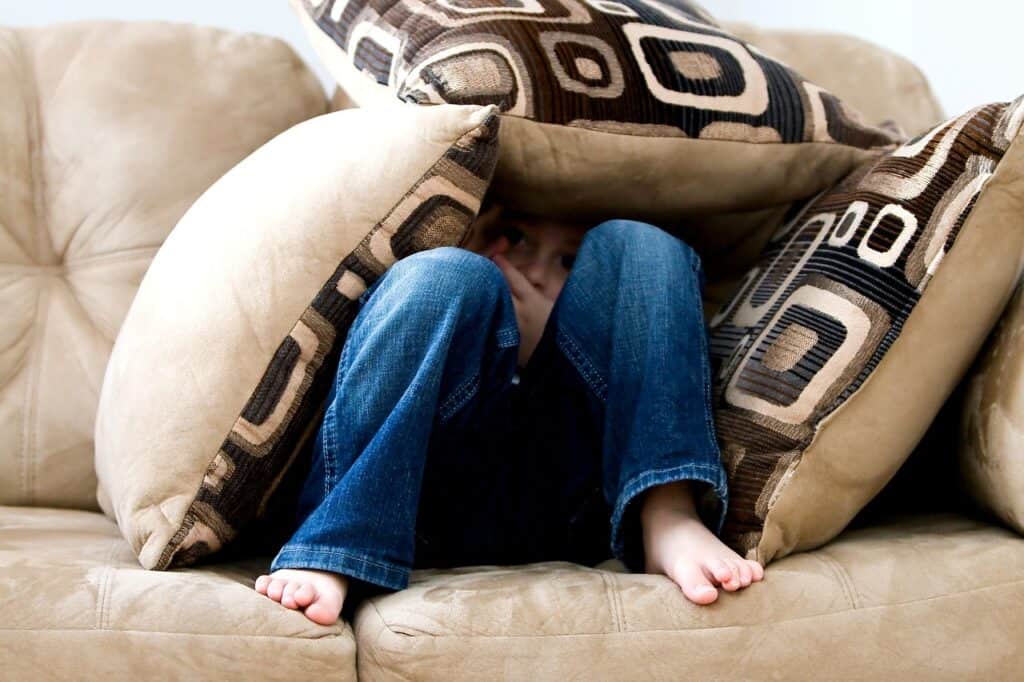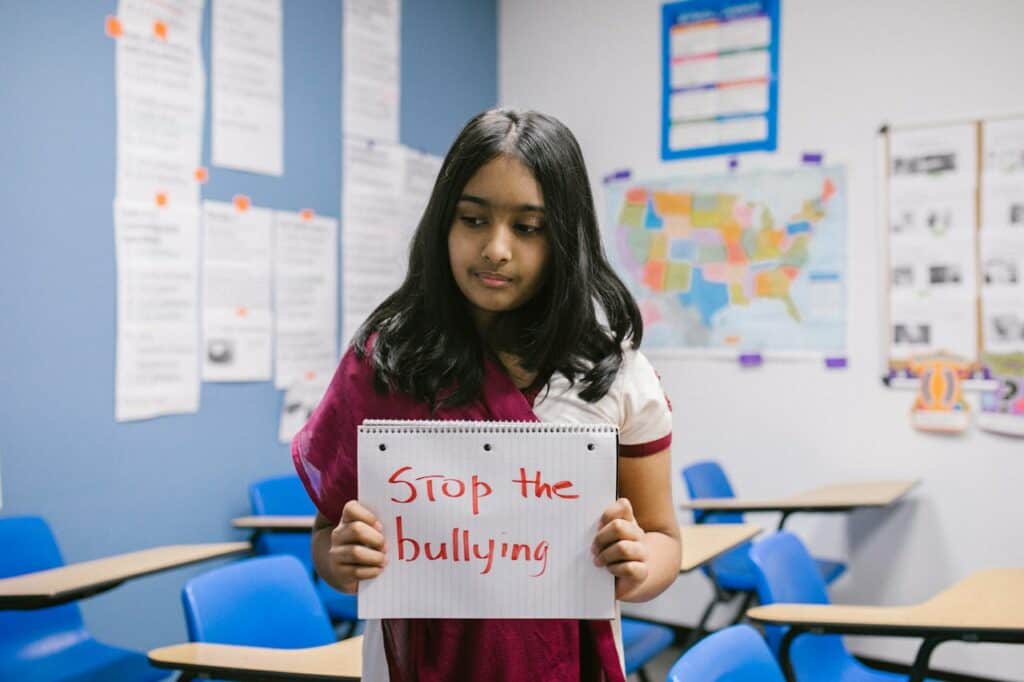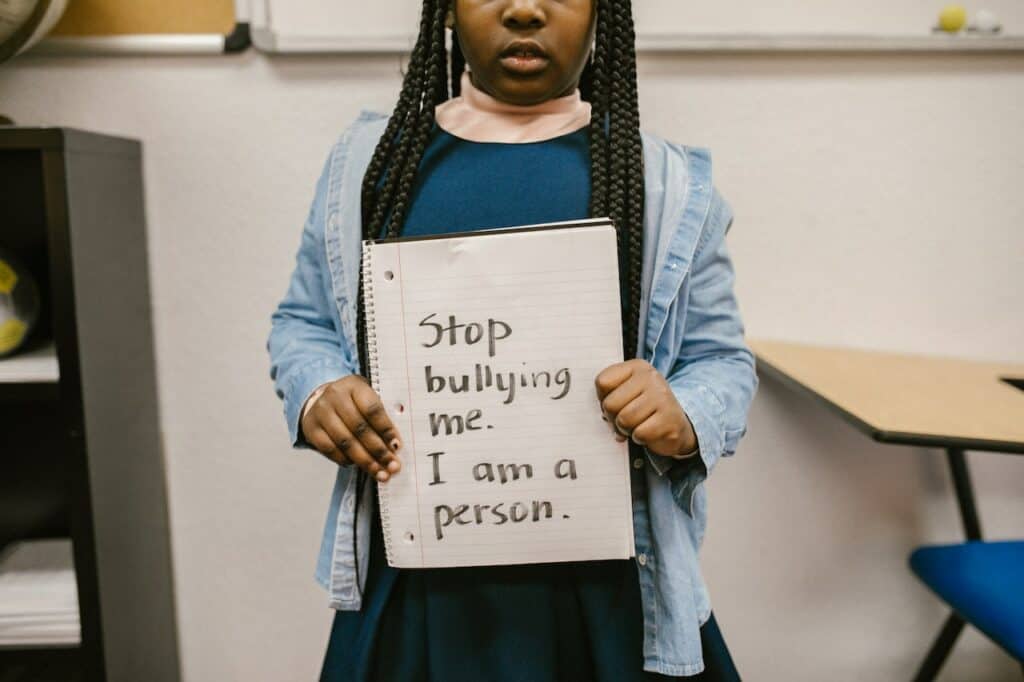When someone is mean to your child, it can be a painful and frustrating experience for both you and your child. As a parent, it’s natural to want to protect your child and make everything right. However, knowing what to do when someone is mean to your child can be a challenge. It’s important to understand the behavior and recognize the signs to effectively manage the situation.
Understanding Mean Behavior Mean behavior can take many forms, including physical, verbal, and emotional abuse. It can occur in person or online. It’s important to understand that the behavior is not a reflection of your child’s worth or character. Rather, it’s a reflection of the other person’s behavior and issues. Recognizing the signs of mean behavior can help you intervene early and prevent the situation from escalating.
Role of Parents As a parent, your role is to support and protect your child. You can do this by creating a safe and supportive environment at home, teaching your child how to respond to mean behavior, and approaching the adult involved in a calm and respectful manner. It’s important to listen to your child’s concerns and validate their feelings. You can also seek professional help if the situation becomes too overwhelming.
Key Takeaways
- Understanding the behavior and recognizing the signs are crucial in managing mean behavior towards your child.
- As a parent, your role is to support and protect your child by creating a safe environment, teaching them how to respond, and approaching the adult involved in a calm and respectful manner.
- Seeking professional help is an option if the situation becomes too overwhelming.
Understanding Mean Behavior
When a child experiences mean behavior, it can be difficult for them to understand why someone would treat them that way. It’s important to help children understand that mean behavior is not acceptable, but it’s also important to help them understand why someone might behave that way.

Mean behavior can come from a variety of sources. Sometimes, children are mean because they are dealing with their own issues, such as stress or anxiety. Other times, children may be copying behavior that they have seen from others, such as parents or siblings. It’s also possible that a child is mean simply because they don’t know how to interact with others in a positive way.
It’s important to help children understand that mean behavior is not a reflection of their worth as a person. Children who experience mean behavior may feel like they have done something wrong or that they are not good enough. It’s important to reassure children that they are valuable and loved, even if someone else is being mean to them.
Parents can also help their children understand that mean behavior is not acceptable by setting clear boundaries and consequences for mean behavior. For example, if a child is being mean to their sibling, the parent may choose to separate the two children and explain why the behavior is not acceptable. Parents can also encourage their children to apologize and make amends when they have been mean to someone else.
Overall, understanding mean behavior can help children feel more confident and empowered when dealing with difficult situations. By helping children understand why someone might behave in a mean way, parents can help their children develop empathy and compassion for others, while also teaching them how to stand up for themselves and set healthy boundaries.
Recognizing the Signs

Child’s Reaction
When a child is being mistreated, they may react in a number of ways. Some children may become visibly upset, while others may try to hide their feelings. It is important to pay attention to your child’s behavior and look for any changes that may indicate that something is wrong.
Some signs that your child may be upset include:
- Crying or becoming emotional
- Becoming withdrawn or uncommunicative
- Becoming more clingy or needy than usual
- Becoming more aggressive or acting out
If you notice any of these signs, it is important to talk to your child and find out what is bothering them. It is also important to remember that every child is different, and some may not show any outward signs of distress.
Changes in Behavior
In addition to changes in their emotional state, a child who is being mistreated may also exhibit changes in their behavior. These changes can include:
- Changes in eating or sleeping habits
- Loss of interest in activities they used to enjoy
- Difficulty concentrating or paying attention
- Decline in academic performance
Again, it is important to talk to your child and find out what is going on if you notice any of these changes. It is also important to keep in mind that some of these changes may be due to other factors, such as stress at school or changes in their home life.
Overall, it is important to pay attention to your child’s behavior and look for any signs that they may be upset or hurt. By recognizing the signs early on, you can take steps to help your child and address the situation before it becomes more serious.
Role of Parents
When a child is being mistreated, it is important for parents to step in and provide support. Here are a few ways parents can help their child navigate the situation.

Listening to Your Child
The first step is to listen to your child. Encourage them to talk about what happened and how it made them feel. It is important to validate their feelings and let them know that you believe them. This will help your child feel heard and supported.
Empathizing with Your Child
Empathy is important in any situation, but especially when a child is being mistreated. Try to put yourself in your child’s shoes and understand how they are feeling. Let them know that you understand how difficult this situation is for them and that you are there to help.
Once you have listened to your child and empathized with them, it is time to navigate the situation. This may involve talking to the person who mistreated your child or contacting someone in authority, such as a teacher or school counselor. It is important to approach the situation calmly and rationally, while still advocating for your child.
Overall, parents play a crucial role in supporting their child when they are being mistreated. By listening to their child, empathizing with them, and navigating the situation, parents can help their child feel supported and empowered.
Approaching the Adult Involved

Contacting the School
If the mean behavior is happening at school, it is important to contact the school and inform them about the situation. The school has a responsibility to provide a safe and respectful learning environment for all students. It is important to provide specific details about the behavior and how it is affecting your child.
When contacting the school, it is important to remain calm and professional. Use clear and concise language to explain the situation. It may be helpful to write down what you want to say beforehand so that you can stay on track and not forget any important details.
After contacting the school, it is important to follow up and make sure that they are taking appropriate action to address the situation. Keep a record of all communication with the school.
Confronting the Bully’s Parents
If the mean behavior is happening outside of school, it may be necessary to approach the parents of the child who is being mean to your child. This can be a difficult conversation, but it is important to remain calm and respectful.
Start by explaining the specific behavior that is causing concern and how it is affecting your child. It may be helpful to provide examples of the behavior. Ask the parents if they are aware of the behavior and if they have any suggestions for how to address it.
If the parents are not receptive to the conversation or do not take appropriate action to address the situation, it may be necessary to involve other authorities such as the police or child protective services.
In any case, it is important to prioritize the safety and well-being of your child and take appropriate action to address the mean behavior.
Managing Online Bullying
Social Media Etiquette
When it comes to managing online bullying, it is important to first consider social media etiquette. Parents should teach their children to be respectful on social media platforms and to not engage in negative behavior towards others. This includes not posting mean comments or sharing hurtful content. It is also important to remind children that what they post online can have real-life consequences, and that they should always think before they post.
If a child is being bullied online, it is important to encourage them to speak up and report the behavior to the appropriate authorities. This may include reporting the behavior to the social media platform, school officials, or even law enforcement if the behavior is severe enough.
Online Safety Measures
In addition to social media etiquette, parents can also take steps to help protect their children from online bullying. This includes monitoring their child’s social media accounts and setting privacy settings to limit who can see their child’s posts and information. Parents should also encourage their child to only accept friend requests from people they know in real life.
When it comes to specific social media platforms, there are additional steps parents can take to help protect their child. For example, on Facebook, parents can set up a “restricted list” for their child’s account, which limits what certain people can see. On Twitter, parents can enable the “protect my tweets” setting, which means that only approved followers can see their child’s tweets.
Overall, managing online bullying requires a combination of social media etiquette and online safety measures. By teaching children to be respectful online and taking steps to protect their safety, parents can help prevent online bullying from occurring and ensure that their child feels safe and supported.
Teaching Your Child to Respond

Building Confidence
When someone is mean to your child, it can be difficult for them to know how to respond. One of the best things you can do as a parent is to help your child build their confidence. This can be achieved by encouraging them to pursue their passions and interests, and by providing opportunities for them to challenge themselves and succeed.
By giving your child the chance to excel in areas they enjoy, you can help them develop a sense of self-worth and a belief in their own abilities. This can be particularly helpful when they encounter difficult situations, as they will have a foundation of confidence to draw upon.
Developing Life Skills
In addition to building confidence, it’s important to help your child develop the life skills they need to navigate challenging situations. This includes skills like communication, problem-solving, and emotional regulation.
One way to help your child develop these skills is to give them opportunities to practice. For example, you might encourage them to speak up for themselves when they feel they have been wronged, or to brainstorm solutions to a problem they are facing.
Fostering Friendships
Finally, it’s important to help your child foster positive relationships with others. This can be particularly helpful when they encounter someone who is mean or hurtful.
Encourage your child to seek out friendships with people who are kind, supportive, and respectful. This can help them build a sense of community and provide a support system when they need it most.
By teaching your child to respond confidently, develop life skills, and foster positive friendships, you can help them navigate difficult situations with grace and resilience.
Seeking Professional Help
When a child is being bullied or mistreated by someone, it can be difficult for parents to know how to handle the situation. Seeking professional help can be a good option for parents who want to ensure that their child is getting the support they need to cope with the situation.

When to Involve a Counselor
If a child is being bullied or mistreated, it can have a significant impact on their mental health and well-being. If a child is struggling to cope with the situation, it may be time to involve a counselor. Counselors can provide children with a safe and supportive environment to talk about their feelings and develop coping strategies.
Parents should consider involving a counselor if their child is experiencing any of the following:
- Anxiety or depression
- Low self-esteem
- Changes in behavior or mood
- Difficulty sleeping or eating
- Avoidance of social situations
Finding the Right Help
When seeking professional help, it is important to find the right counselor for your child. Parents should look for a counselor who has experience working with children and who specializes in dealing with bullying and other related issues.
Parents can find a counselor by:
- Asking for recommendations from their child’s school or pediatrician
- Checking with their insurance provider for covered options
- Searching online for counselors in their area
It is important for parents to involve their child in the process of finding a counselor. Children should feel comfortable with their counselor and be able to trust them.
In conclusion, seeking professional help can be a helpful option for parents who want to support their child through a difficult situation. By involving a counselor, parents can ensure that their child is getting the support they need to cope with bullying and other related issues.
Role of Community in Bullying

Community Awareness
The community plays a crucial role in preventing and addressing bullying. Community awareness is an essential aspect of combating bullying. Parents, teachers, school administrators, and community leaders must work together to educate the community about the harmful effects of bullying. They should organize seminars, workshops, and training sessions to raise awareness about bullying and its consequences.
It is also essential to educate the community about the different types of bullying, such as physical, verbal, and cyberbullying. This will help parents and teachers identify the signs of bullying and take appropriate action.
Support Groups
Support groups are another vital aspect of the community’s role in addressing bullying. These groups provide a safe and supportive environment for children who have been bullied or are experiencing bullying. They help children to feel less alone and provide them with the tools and resources they need to cope with bullying.
Support groups also help parents and caregivers by providing them with information and resources to help their children. They offer a space for parents to share their experiences and learn from each other.
Overall, the community plays a critical role in preventing and addressing bullying. By raising awareness and providing support, the community can help equip children with the tools they need to deal with bullies and ensure that they feel safe and supported.
Conclusion
Dealing with mean behavior towards your child can be a challenging experience. However, it is essential to remain calm and composed in such situations. By following the tips mentioned in the article, parents can help their child deal with mean behavior in a constructive manner.
It is crucial to teach children about self-respect and self-worth. Encouraging them to speak up for themselves and seek help when needed can go a long way in building their confidence and resilience. Parents can also help their children develop coping mechanisms to deal with negative behavior, such as deep breathing, positive self-talk, and visualization techniques.
It is also important to address the behavior of the person who is being mean to the child. Parents can approach the person in a calm and non-confrontational manner, and try to understand their perspective. If necessary, parents can also involve a third party, such as a teacher or counselor, to help resolve the situation.
In conclusion, dealing with mean behavior towards a child can be a difficult experience, but it is important to handle it with care and understanding. By teaching children to respect themselves and seek help when needed, parents can help their child develop the resilience and confidence to deal with negative behavior in a constructive manner.
Also, here are some interesting posts that you might be enjoyed:
- 10 Practical Parenting Tips for Young Moms and Dads
- Answers for Single Parents Who Ask Homeschooling 101
Frequently Asked Questions
How can I teach my child to cope with mean behavior from others?
Teaching your child to cope with mean behavior from others can be challenging, but it is an important life skill. Encourage your child to talk to you about their experiences and feelings. Help them to understand that they are not responsible for the behavior of others, and that it is okay to walk away from a situation that makes them uncomfortable. Teach your child to be assertive and to stand up for themselves in a respectful manner.
What are some effective ways to address mean behavior from classmates?
If your child is experiencing mean behavior from classmates, it’s important to address the situation as soon as possible. Talk to your child’s teacher or school counselor and ask for their assistance in resolving the issue. Encourage your child to speak up for themselves and to assertively communicate their feelings to their classmates. Role-play different scenarios with your child to help them practice effective communication skills.
What should I say to my child when someone is mean to them?
When your child experiences meanness from others, it’s important to validate their feelings and provide emotional support. Let your child know that you are there for them and that you understand how they feel. Encourage your child to talk about their experiences and feelings, and help them to develop coping strategies.
How can I support my child when they experience meanness from others?
Supporting your child when they experience meanness from others is crucial. Listen to your child’s concerns and feelings, and provide emotional support. Help your child to develop coping strategies, and encourage them to seek help from a trusted adult if necessary. Advocate for your child and work with their school to address the situation.
What are some strategies for dealing with a parent who is mean to my child?
Dealing with a parent who is mean to your child can be difficult. It’s important to remain calm and assertive when communicating with the parent. Set clear boundaries and expectations for their behavior, and document any incidents that occur. If the situation becomes unmanageable, seek assistance from a mediator or legal professional.
What steps can I take to help my child understand and manage their own mean behavior?
If your child is exhibiting mean behavior towards others, it’s important to address the situation as soon as possible. Talk to your child about their behavior and the impact it has on others. Help your child to understand the importance of empathy and kindness, and encourage them to practice positive social skills. Seek help from a mental health professional if necessary.

Iesha is a loving mother of 2 beautiful children. She’s an active parent who enjoys indoor and outdoor adventures with her family. Her mission is to share practical and realistic parenting advice to help the parenting community becoming stronger.
